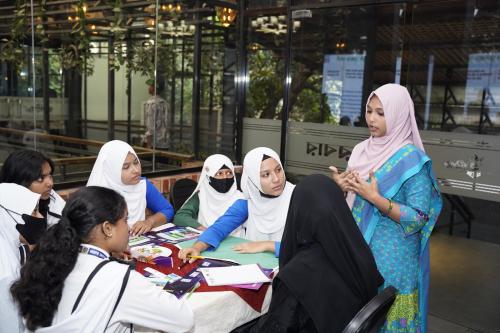Approximately one-third of all Nicaraguan students either repeat or drop out of the first grade. On a test of basic math skills in grade three, 60 percent of students scored in the lowest level or below. Unsurprisingly, a survey of business leaders indicated that the perceived quality of Nicaragua’s primary schools education ranks among the lowest in the world: 134 out of 142.
Considering Nicaragua faces an education quality crisis, external public and private donor financing is relatively low. A Brookings study examining the implications of donors’ new education strategies revealed that five countries, the Netherlands, Denmark, Canada, Sweden and Finland, will pull or severely reduce education support for Nicaragua this year. From 2006-2009, these donors’ contributions averaged 35 percent of the country’s total basic education expenditures. In our assessment of corporate social investments, only 6 percent of U.S. Fortune 500 companies that invest in education direct resources to Nicaragua and less than 10 percent of the largest Latin American companies that invest in education direct support to Nicaragua.
Given this bleak assessment, the time for the Nicaraguan business community to step up and support the government’s provision of education could not be greater. The business case is simple: investing in education in Nicaragua is an investment in both current and future employees, the safety and stability of the communities where businesses operate, the potential purchasing power of consumers, and a company’s reputation.
This week, while visiting business-led education initiatives in Nicaragua, two companies stood out as examples of the private sector supporting education in the country:
Telefónica: The Aula Fundación Telefónica (Telefónica Foundation Classroom) program supports teacher quality in marginalized public schools. A participating school dedicates a classroom to the project and the foundation provides internet connectivity, computers, projectors, audio and a host of other technology resources. Professional development workshops for teachers focus on how to use technology to improve pedagogical practices within the existing curriculum. Teachers are also connected to a network of educators across Latin America and are able to share experiences and successful tactics with each other. While visiting a public school in Managua, Colegio Francisco Morazán, I observed a team of teachers using the Telefónica Foundation Classroom to teach a lesson about planet earth and the seasons of the year. The third-graders were highly engaged in the content and discussions. Primarily in urban regions of the country, Telefónica has committed to expanding the program throughout rural areas over the next several years.
Plasencia: In the town of Esteli, known for its 22 cigar manufacturing plants, one company, Plasencia, has piloted a full-scale education program for its employees. Across the street from a manufacturing plant, the company has built an early childhood development center for employee’s children up to age six. The program uses a project-based, active-learning curriculum, integrates nutrition into the curriculum, has courses for parents on child development, and provides an onsite psychologist for students and parents. For employees, the company pays university tuition, contingent upon good performance in the courses. The goal is for the program to expand to all of the companies’ factories, and through groups like Empresarios por la Educación, an association of businesses for education, expand the model to other factory-based industries throughout the country.
Despite the dire state of funding and the relatively poor quality of education in the country, there is already an understanding from some members the business community – as exemplified by Telefonica and Plasencia’s programs – that they have the opportunity to make a sustainable impact. A forum on best practices on corporate social investments in education, organized by Eduquemos Empresarios por la Educación and PREAL‘s Business Education Alliance Program (Programa Alianza Educación Empresa, PAEE), brought together business leaders, local think tanks, and the education community. PAEE invited the Brookings Center for Universal Education to present its recent research on corporate social investments in education. Leaving the meeting, there was a clear sense that greater engagement and investments in education by the business community could create a shared business and social value. While not without challenges, I left optimistic that if the business community works with each other and the government, they can be strong advocates for quality education for all young people in Nicaragua and catalyze systemic change.
The Brookings Institution is committed to quality, independence, and impact.
We are supported by a diverse array of funders. In line with our values and policies, each Brookings publication represents the sole views of its author(s).



Commentary
The Case for Local Business Support for Education in Nicaragua
March 6, 2012